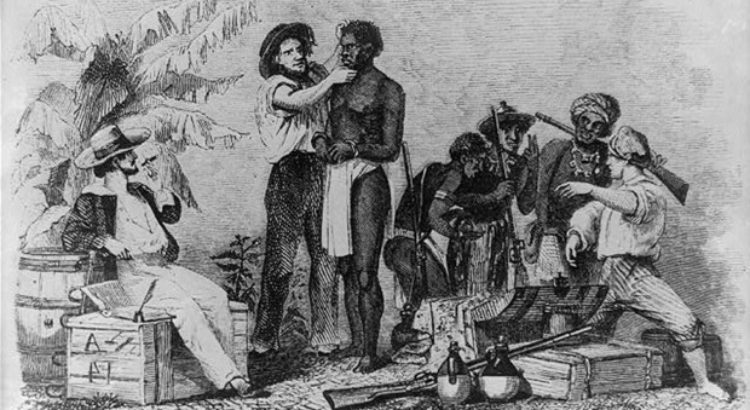Europa/ReinoUnido/universityworldnews.com
La quinta edición de U-Multirank proporciona una nueva visión de las fortalezas y debilidades relativas de diferentes sistemas de educación superior en Europa y los Estados Unidos de América, y el Reino Unido e Irlanda se desempeñan con más fuerza para la enseñanza y el aprendizaje como resultado de su buena Puntuaciones de finalización de los estudios a tiempo.
U-Multirank afirma ser el ranking universitario mundial más grande del mundo, con un total de más de 1.600 universidades de 95 países en comparación por sus fortalezas y debilidades utilizando indicadores en cinco dimensiones: Enseñanza y aprendizaje; Investigación; Transferencia de conocimiento; Orientación internacional; y compromiso regional. Califica estos en base a ‘A’ para ‘muy bueno’ a ‘E’ para ‘pobre’.
El Reino Unido en su conjunto obtuvo el 73% de los puntajes A (muy bueno) y B (bueno) en la dimensión de enseñanza y aprendizaje del U-Multirank de este año.Irlanda quedó muy cerca, obteniendo el 72.5% de las calificaciones más altas en graduación y en las tasas de finalización a tiempo para los programas de licenciatura y maestría.
Nuevas clasificaciones nacionales
Las clasificaciones nacionales son una característica nueva este año y muestran el rendimiento relativo de los sistemas nacionales de educación superior en 18 países.
Los Estados Unidos obtuvieron el puntaje más alto en la dimensión de investigación, con un puntaje general de 75.6% para los grados A y B. La Universidad Rockefeller en los EE. UU. Obtuvo el índice más alto de citas seguido por el Instituto de Tecnología de Massachusetts.
Pero Estados Unidos tuvo uno de los puntajes más débiles para el desempeño internacional, alcanzando solo el 30,4% de los grados A y B en esta dimensión del ranking, que analizó la oferta de enseñanza de lenguas extranjeras, movilidad estudiantil, personal académico internacional, doctorados internacionales e internacionales. publicaciones conjuntas.
Los países más pequeños se desempeñan con fuerza
El co-líder de U-Multirank, el Dr. Frank Ziegele del Centro para la Educación Superior en Alemania, dijo: «Los nuevos rankings nacionales muestran a los pequeños países europeos funcionando muy bien en algunas áreas, especialmente con orientación internacional, con Bélgica, Dinamarca, Austria y Noruega, superando a los Estados Unidos y Alemania en la dimensión internacional de los rankings. »
Alemania tuvo un desempeño pobre en enseñanza y aprendizaje, con solo 24.4% de puntajes A y B, debido, en parte, a tasas de no finalización y estudiantes tomar más tiempo para graduarse. Las mejores actuaciones de Alemania fueron para investigación: 56%; orientación internacional al 50.6% y transferencia de conocimiento al 49.6%.
Francia hizo bien en la enseñanza y el aprendizaje con un puntaje de 70.8% y ganó 72.5% en la dimensión internacional de U-Multirank.
Finlandia, a menudo vista como una líder en la educación superior, tenía un puntaje sorprendentemente bajo para las «tasas de finalización del tiempo» en la enseñanza y el aprendizaje: solo el 26,7%. Pero mejoró para la investigación: 59.4% y alcanzó 71.4% para la orientación internacional.
Bélgica fue el máximo anotador de investigación entre los 18 sistemas de educación superior investigados por U-Multirank, ganando 82.9%, pero se hundió a 26.3% para enseñanza y aprendizaje. Sin embargo, algunas de sus universidades individuales se desempeñaron fuertemente en la enseñanza y el aprendizaje a nivel de materia, incluida la Universidad de Namur, que obtuvo grandes resultados en matemáticas, y la Universidad Católica de Lovaina, que tuvo un buen desempeño tanto en biología como en química.
Suiza tuvo un fuerte desempeño en muchos de los indicadores, ganando un 69% en investigación y un 71,7% en internacionalización.
La edición de este año es la primera desde que se introdujo un nuevo modelo de gobernanza y financiación en el que el apoyo financiero para U-Multirank se comparte entre el programa Erasmus + de la Comisión Europea y la Fundación Bertelsmann en Alemania y el Grupo español Santander.
Mirando más allá de los indicadores tradicionales,
Ziegele dijo a University World News : «Lo que es único de U-Multirank es que miramos más allá de los indicadores tradicionales en los que se basan la mayoría de los rankings universitarios, como la reputación entre académicos y la fuerza investigadora. Esto les permite a los usuarios crear sus propios rankings personales para las fortalezas particulares que están buscando, que pueden ser la movilidad de los estudiantes o el porcentaje de personal académico internacional en la universidad.
«También permite que se otorgue crédito para las áreas que pasan por alto los rankers tradicionales, como el compromiso regional. Las universidades españolas, por ejemplo, son muy buenas para involucrarse y apoyar a sus regiones locales.España ganó un 63.7% en los puntajes A y B en la dimensión de compromiso regional de nuestros rankings, que también vio a la educación superior en Irlanda, Italia y Polonia brindando un buen apoyo a sus regiones.
«En comparación, el Reino Unido solo obtuvo un 14.1% de participación regional por parte de sus universidades.»
Mejores universidades para cosas diferentes
Ziegele dice: «Nuestro enfoque significa que no hay ganadores generales en U-Multirank, solo las mejores universidades por diferentes cosas que destacamos como las ‘Top 25’ universidades en las diferentes dimensiones.»
U-Multirank de este año muestra la diversidad en mayores excelencia educativa con 225 universidades obteniendo los mejores puntajes ‘A’. EE. UU. Tenía el 18% de sus universidades clasificadas con al menos un puntaje ‘A’. El Reino Unido tuvo un 13%, seguido de Francia y Alemania con un 8% y Taipei Chino y España con un 4%.
En general, Europa se desempeña mejor en las listas globales ‘Top 25’, logrando el 56% de los mejores puntajes generales, seguida por Asia con el 21.7% y los Estados Unidos y Canadá con el 18.6%.
Europa fue el claro ganador de la movilidad estudiantil, donde sus universidades ocuparon 24 de los 25 primeros puestos y obtuvieron 19 de los 25 primeros puestos para publicaciones de investigación interdisciplinaria. Asia obtuvo mejores resultados en publicaciones y patentes conjuntas internacionales, logrando 10 y nueve de las 25 mejores posiciones, respectivamente. EE. UU. Fue más fuerte en publicaciones de investigación y citas principales con 15 y 13 de las 25 mejores posiciones, respectivamente.
Ziegele dijo que para mejorar su cobertura de las universidades, cada vez se usan más datos para crear U-Multirank a partir de información públicamente disponible, como la proporcionada por HESA (la agencia de estadísticas de educación superior del Reino Unido). Pero todavía había algunas lagunas en el nivel de las materias donde las universidades se negaron a proporcionar los datos.
A pesar de la reticencia de U-Multirank para declarar ganadores generales, algunas universidades se destacan por su desempeño sobresaliente en más de una dimensión, dijo Ziegele
Ecole Polytechnique Fédérale de Lausanne es una de las 13 universidades en Suiza incluidas en el ranking. Es una institución especializada que se caracteriza por un alto porcentaje de estudiantes internacionales y tiene un buen desempeño en varios indicadores de U-Multirank, con 17 puntajes ‘A’ (muy buenos).
La Universidad de Maastricht es una de las 53 universidades incluidas en U-Multirank para los Países Bajos y tiene un alto porcentaje de estudiantes internacionales. Su perfil general muestra un rendimiento superior en varios indicadores, con 16 puntajes ‘A’.
La Technical University of Denmark es una de las ocho universidades de Dinamarca incluidas en U-Multirank y otra de las mejores en U-Multirank con 16 puntajes ‘A’ en todas las dimensiones.
La Universidad de Newcastle es una de las 156 universidades incluidas en U-Multirank para el Reino Unido y, como las otras destacadas por Ziegele, tiene un alto porcentaje de estudiantes internacionales. Ganó 16 puntajes ‘A’.
Ziegele dijo que las clasificaciones de este año, publicadas el 5 de junio, son las más grandes, pero aún está trabajando con el gobierno chino para expandir la cobertura de U-Multirank de las universidades chinas, ya que los datos que requieren no están disponibles públicamente. También planean un mayor enfoque en América Latina en futuras ediciones de U-Multirank.
U-Multirank fue desarrollado por un consorcio independiente para la Comisión Europea por el Centro para la Educación Superior (CHE) en Alemania, el Centro para Estudios de Políticas de Educación Superior (CHEPS) en la Universidad de Twente y el Centro de Estudios Científicos y Tecnológicos (CWTS) ) de la Universidad de Leiden, tanto en los Países Bajos, como de la Fundación Conocimiento y Desarrollo (FCYD) en España. El consorcio está dirigido por los profesores Dr. Frans van Vught de CHEPS y el Dr. Frank Ziegele de CHE.
Nic Mitchell es un periodista independiente y consultor de relaciones públicas de Gran Bretaña que dirige De la Cour Communications y blogs sobre educación superior para la Asociación de funcionarios de información pública y relaciones públicas de las universidades europeas, EUPRIO, y en su sitio web . Proporciona soporte de comunicación en inglés para universidades noruegas, checas y del Reino Unido.
Fuente: http://www.universityworldnews.com/article.php?story=20180615130522191
Imagen tomada de; https://www.hse.ru/data/2017/03/30/1168524610/1U_Multirank-logo_rgb13.jpg













 Users Today : 17
Users Today : 17 Total Users : 35460320
Total Users : 35460320 Views Today : 21
Views Today : 21 Total views : 3419049
Total views : 3419049